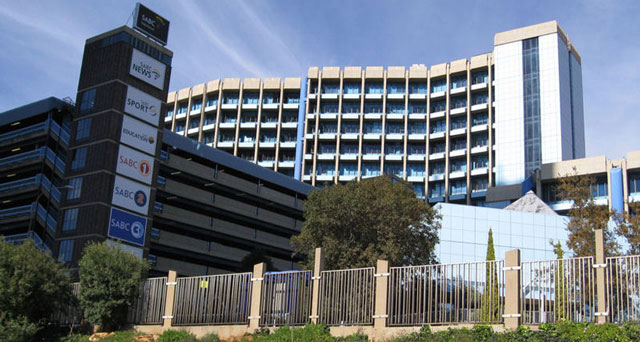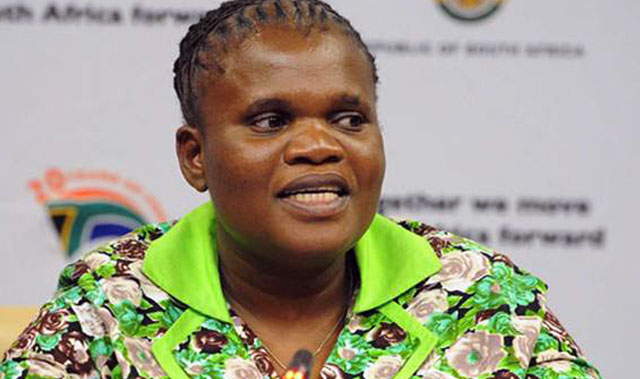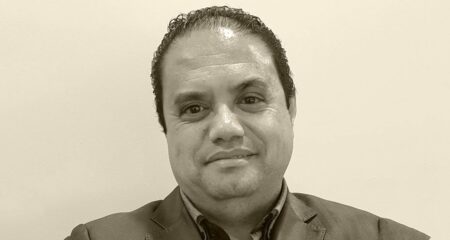
South Africa’s public broadcaster is battling to quell a journalist revolt over censorship of programmes that portrayed the government in a negative light and its ban on screening footage of protesters destroying property because it didn’t want to encourage violence.
Jimi Matthews resigned as acting CEO of the SABC on Monday, four days after three senior journalists were suspended for disagreeing with a management instruction not to report on protests by civil-rights group Right2Know against censorship.
Several other senior SABC journalists posted pictures of themselves on Facebook with their mouths covered with black adhesive tape.
“For many months, I have compromised the values that I hold dear under the mistaken belief that I could be more effective inside the SABC that outside, passing comment from the sidelines,” Matthews said in his resignation letter posted on Twitter.
“In the process the prevailing corrosive atmosphere has impacted negatively on my moral judgment and made me complicit in many decisions which I am not proud of.”
SABC board chairman Mbulaheni (Obert) Maguvhe blamed the ructions at the broadcaster on outside political interference and employees who are opposed to change, according to two employees who attended a staff meeting on Tuesday and asked not to be identified.
Maguvhe warned that anyone who leaked information or tried to drive political agendas will be tracked down and would be subject to disciplinary procedures, said the employees.
The SABC operates four television channels and 22 radio stations, giving it by far the biggest reach of any South African media outlet.
Opposition parties accuse President Jacob Zuma and his communications minister, Faith Muthambi, of exercising undue influence over the broadcaster and ensuring that chief operating officer Hlaudi Motsoeneng retains his post, despite rulings by the high court and the nation’s graft ombudsman that he should be removed after it emerged that he lied about his qualifications.
“Under Zuma’s instruction, Hlaudi Motsoeneng is successfully turning our public broadcaster into a state propaganda machine,” said Mmusi Maimane, leader of the Democratic Alliance, which staged a protest outside the broadcaster’s Johannesburg premises on Tuesday.
SABC chief financial officer James Aguma was appointed as acting CEO, Maguvhe told reporters at a briefing on Tuesday in Johannesburg.

“SABC is not in a crisis,” Maguvhe said at the same briefing. “There is no revolt. SABC is carrying out its mandate. The only people who spread these rumours want to detract us from the noble idea of fulfilling the mandate. Let external forces not meddle in our affairs. That is not building this institution, it is rather destroying it.”
Mish Molakeng, a spokesman for Muthambi, didn’t answer his mobile phone or respond to messages seeking comment.
The South African National Editors Forum, which represents senior journalists at most of the country’s biggest media outlets, called for an end to censorship at the SABC.
“The SABC is an asset of the South African public as a whole and that it is being turned into a state broadcaster that only serves the interests of the ruling party is wrong and must be condemned,” it said in a statement on its website.
“We call on the leadership of the SABC to urgently reverse its decision to censor the news and allow its journalists to work in a free environment that does not compromise their ethics.”
Regulations enforced by communications regulator Icasa compel the broadcaster to cover all electoral events, including rallies of opposition parties, SABC spokesman Kaizer Kganyago said in an interview on Johannesburg-based Power FM. There is also “no truth to the statement that we shouldn’t show anything negative” about Zuma, he said. — (c) 2016 Bloomberg LP
With reporting assistance from Paul Vecchiatto and Arabile Gumede




